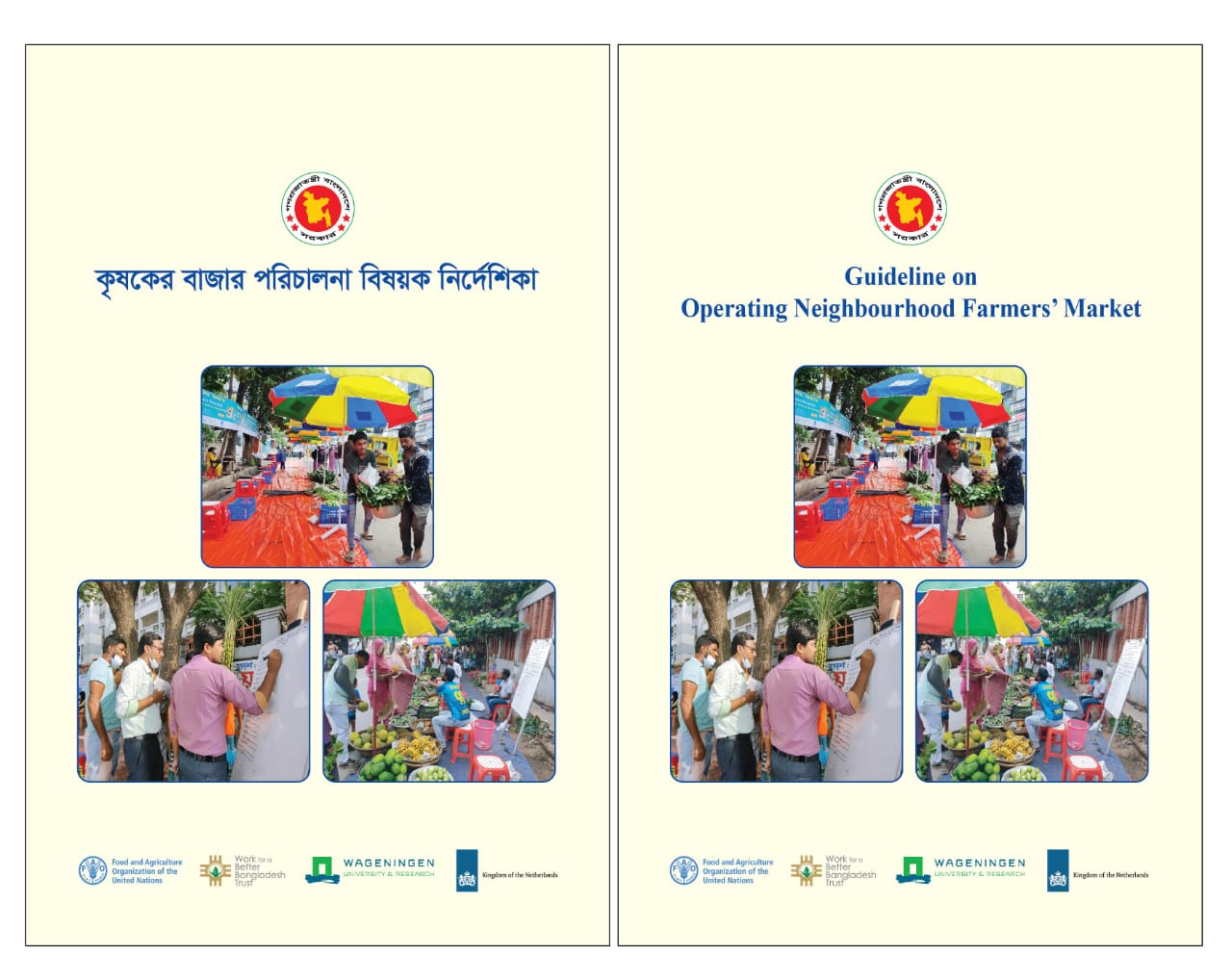
Guideline On Operating Neighbourhood Farmers’ Market
A farmers’ market is a public and recurring assembly of farmers or their representatives selling the food that they produced directly to consumers.
The market is usually organized on a weekly basis. Ideally it will only include food grown safely, e.g., without harmful chemicals. The market establishes direct connection and ensures mutual benefits between farmers and consumers. The products available in the farmers’ market are expected to be safely grown. In other words, the vegetables available in the farmers’ market are grown following good agricultural practices (GAP), ideally favoring the use of organic fertilizer and organic pesticide often using integrated pest management.
Thus, the market can be helpful in raising food safety. A farmers’ market may provide access to a wide variety of agriculture product, such as safer vegetables, fruits, grains and, under the adequate circumstances, safe fish, meat, eggs, milk, and other dairy products. Establishing a farmers’ market needs specific efforts and steps. Choosing a location, getting the approval of local officials and the support of the local community, identifying farmers who are interested in selling safe food on a weekly basis at the location, etc. After accomplishing the first big step, the ongoing operation of a farmers’ market will require to address a number of other areas. In this guidelines, we will walk you through a number of issues that are likely to come up in the operation of farmers’ market. This guideline is prepared by Work for a Better Bangladesh (WBB) Trust for the Food and Agriculture Organization of the United Nations, in the framework of the Support for Modelling, Planning and Improving Dhaka’s Food System (DFS) project funded by the Kingdom of The Netherlands. Please Download
Other Publication
22nd August, 2023
2nd February, 2023
1st February, 2023
26th July, 2022
11th May, 2022
Working Area

